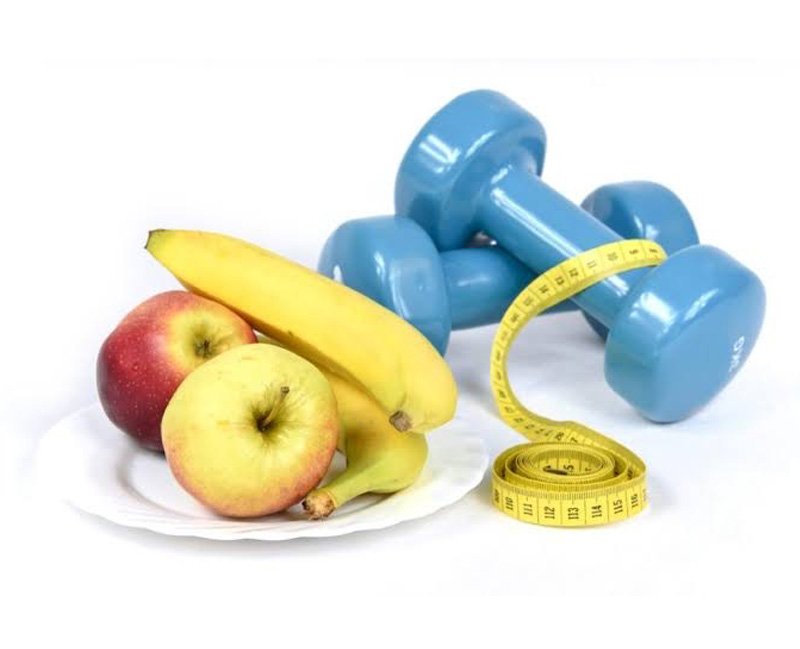
Weight loss has been one of the top searched trends of the decade and though the journey is unique to every one. Some mountains fall across every path or in this case the dreaded plateau. The place of immovable numbers on the scale and for people whose whole motivation to keep at it comes from it. It wrecks havoc on their plans. A food diary is one such tool that can help people move beyond the plateau, as research shows keeping a track of what you eat is a super effective tool in gaining those weight goals.
In one study having over 1700 overweight participants that were being monitored over a 6 month period, it was seen that the people who kept food diaries lost twice as much weight as people that were not recording their intake
Another study shadowed people who had participated in a 6 week weight management program and lost weight. Maintaining a food diary was one of the strategies that kept them accountable when maintaining weight loss over a two year period after the program ended.
“A food diary helps people make smarter choices when eating,” says study author Lisa Matero, PhD, a senior staff health psychologist with Henry Ford Health System and a clinical assistant professor at Wayne State University School of Medicine in Detroit. “If someone is interested in losing weight, the first thing I suggest is to keep a food diary.”
It holds you accountable. Unless you write it down, you may forget you had a bite of your daughter’s mac and cheese when you were feeding her lunch or a few chips mid-afternoon. “Most of us are mindlessly eating throughout the day, and a journal brings awareness to this unhealthy habit,” says Shena Jaramillo, RD. “This is true whether the person decides to incorporate calories into their journaling or not.”
What’s more, some people make healthier choices when they know they’ll be writing down everything they eat. “When tracking your intake, you may think twice about having that extra snack, especially if you’ll be reporting it,” says Linda Nikolakopoulos, RD.
Why is a Food Diary Effective?
It highlights trends.
We as a species have become habitual munchers, we take random bites from food all during the day, moms will take bites from their kids meals, brothers pick at their sisters snacks and friends offer us food and we usually accept. These calories are easily forgettable and they lie outside the realm of what we consider meals. Recording these helps us see these stacking up onto our daily calorie intake and helps maintain that caloric deficit
“The little bites here and there that seemed insignificant prior to keeping a food record are now seen as bigger factors, writing down every bite of food reveals patterns and habits you never even knew you had.” Nikolakopoulos says.
It also helps to see what’s working and what’s not working when you hit that plateau. When you hit that dreaded road block and you’re tracking your calories it’s easier to create a larger deficit.
Tips and Tricks of Keeping a Food Diary:
1. Use a fitness planner app like the MyFitnessPal app to track everything.
Our phones are always at hand and remove the reason for keeping a pen and paper handy. Giving us the ability to track instantly what we had, before, during or right after we have a snack
2. Don’t wait in logging it.
Don’t waste time putting those calories in the record, the longer you put it off the larger the chances of you forgetting what you had and how much of it you had. If you’re the sort that is putting in the entries before you have the meal that can help with planning the meal or in some cases skipping it altogether.
3. Don’t ignore the little things.
There’s a lot of extras that we forget to include into our normal intake but those count as much as all our meals. That pesky tea spoon of sugar with our Chai, that one biscuit picked off a colleagues table while standing there, the extra dressing on the lunch salad, all of these are calories that you can work around if you can see your intake of them.
4. Record your mood
Comfort food is called comfort food for a reason, most of us tend to gravitate towards food as we get stressed our the endorphin rush helps us feel better. It also helps us not meet our weight goals. By recording your mood you can tell what times you were stress/boredom eating and what times were you actually hungry and once you have a trend you’ll be able to work on the root cause instead of finding an easy fix in food.
5. Sharing may help.
While it’s not necessary to advertise what you’ve had or not had, having someone to share with can provide motivation and keep you on track. Having a journal also helps if you ever see a dietian or a nutritionist. Better data makes for better decisions towards higher goals.
While it may seem like a tall task to track and record everything you eat and drink, once you get to it, it eventually becomes habitual and easier and faster. In fact it takes about 15 minutes in your whole day to track your eating and like we said earlier better data leads to better decisions to reach better goals.


